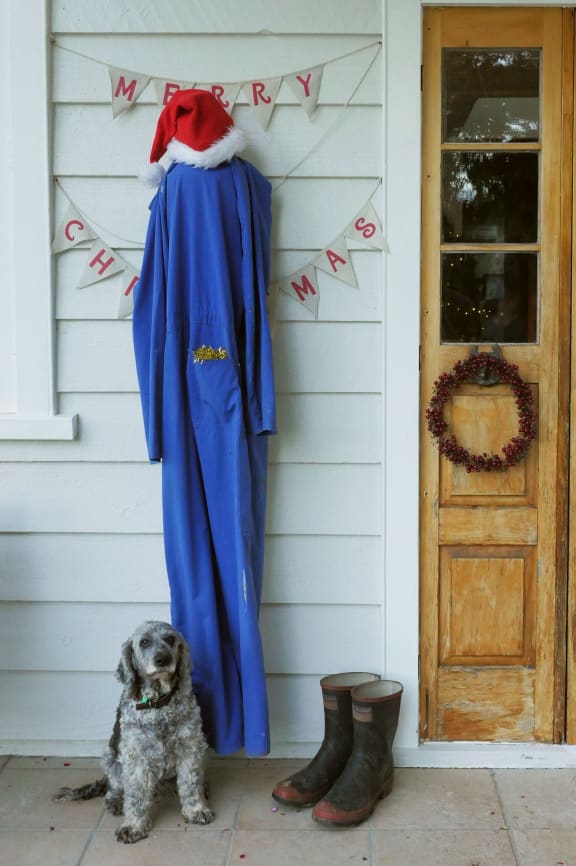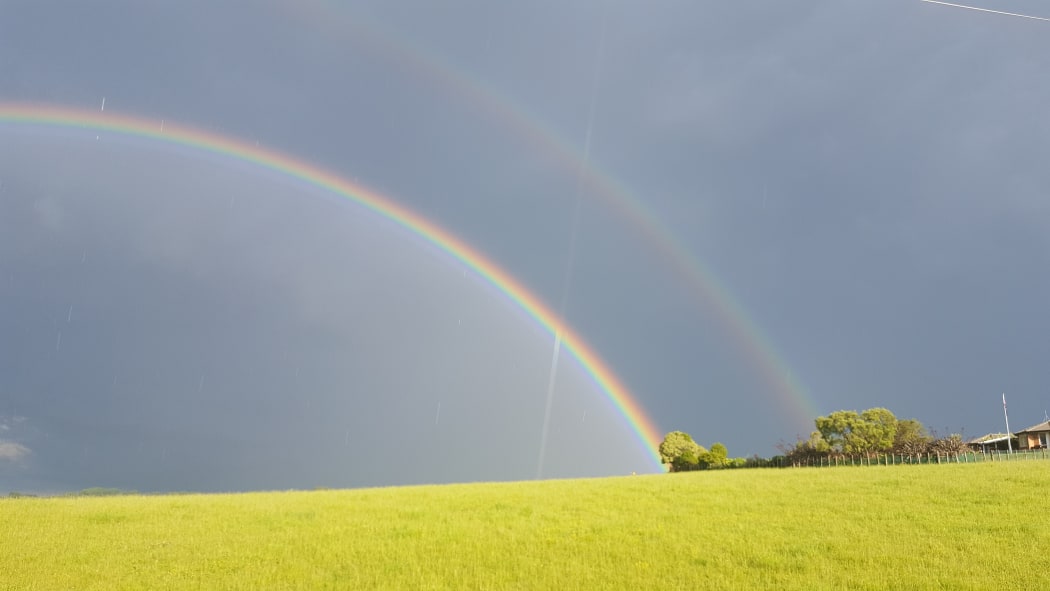Each week our Country Life reporters look at what's been happening on farms and orchards around New Zealand.
Northland has had a good mix of sunshine and rain so most farms are reasonably good for grass covers and aren't under too much pressure heading into early January. Stock markets are in Christmas mode and farmers will be back into selling in a few weeks.
It's hard to comment on how the vegetable growing area of Pukekohe is set up for the next month because they're much more day by day for production. The middle of the week was fine, but plenty of rain fell at the start and the end; it exceeded 50 millimetres. That meant the chance to harvest potatoes and onions has been interrupted. Other crops are continuing to maintain vigorous growth and high yields so the retail prices are low for many leafy greens. A garlic grower reports some crop loss due to the warm wet weather causing the bulbs to swell rapidly and split.

Photo: supplied
Waikato had huge volumes of rain; up to 70mm in a few hours for some places. It means farms are well set up for summer and the moisture will carry them through until end of January. There are plenty of supplements around too.
It's fantastic for Bay of Plenty dairy farms looking into January; plenty of grass, lots of silage, cows are happy and milking well. Kiwifruit orchards have good moisture levels, but actually completing summer jobs like pruning isn't easy with all the rain. It won't be a bumper year for green kiwifruit, but it'll be okay. A few orchards have been hit with hail which is devastating for them, but industry wide it won't have much impact.
More Rain
Taranaki is well set up. There's been plenty of rain and lots of silage and hay cut. The season to date milk production is about 7 percent ahead.
Gisborne had a big rain this week so if the wind stays away, farms will be really good for the next two to three weeks for feed. Once it warms up lambs will be humming because there's so much feed around. However vegetable cropping farmers may get Christmas day off but then they'll be flat out again because they're running weeks behind with all the rain. The first sweet corn is picked; it's not quite as sweet as the crop that'll be picked early in 2019.
Hawkes Bay is drying off a bit but rain early in the month has created much more summer feed than normal. There's a green tinge to most properties. A hot wind will change that but the base feed is there so stock will be well fed. Fly strike is creating hassles and the wet has held up shearing. The next month will be busy with hay and silage making too.
On orchards all the rain has been super for pipfruit going into January. It's a sad story for summer fruit growers. The wet has been terrible for them. Any cherries still on trees will be badly affected with fruit splitting. It's the same story for nectarines and apricots. And brown rot will be common meaning fruit won't store or eat well. It has been a poorer year all round for these crops.
Wairarapa looks good for January after recent days of sun and rain. Pastures are green and often they are brown by now. Some crops haven't come to much because of the weather but hopefully there's enough grass so the supplements won't be needed as much. Milk production is equal or up on last year .
Manawatu is fantastic. There's been lots of rain and farmers are feeling really comfortable and happy, quite a change from two weeks ago. The rain has given crops a complete kick and grass is jumping away. Summer crops are being grazed because they have to be, not because they need to be. Things like chicory need grazing now so it grows a second and third time.
Horowhenua is also set up for summer. The moisture in the past week's been great and gives a month of feed on the heavier country. The main topic's how to cope with too much grass. Those on steeper land can't top the grass so it's more a nuisance, but it's still a good problem to have.
South Island
Apple thinning is in full swing the Nelson / Motueka region. Thinning has finished up in gold kiwifruit orchards though they need to avoid damaging fruit as they mark easily. Hop growers have welcomed the rain this week as it means they are set for the next while. Between 25 and 40 millimetres is in the gauge. Everyone's sick of the cloudy weather though.
A letter to Santa from growers says 'we'd like no adverse weather conditions leading up to harvesting please'! The biggest concern for them heading into 2019 is the recent lift in the minimum wage, which will ramp up costs in orchards.

Photo: RNZ/Susan Murray
RSE workers in Marlborough vineyards are wire lifting and plucking excess vegetation. Sprays are going on to control fungal diseases. A decent dose of rain on Wednesday has sent grass growth into fifth gear but has done no favours for cherry growers. Hill farmers and contractors will be working pretty well right through getting early drafts of lambs away at good weights and there's lots of hay on the ground waiting to be baled up.
A farmer inland from Kumara on the West Coast is getting his paddocks worked up for crops and making silage. There's been about 50mm of rain this week but ground conditions on the farm are still reasonably firm. Milk production is up 3 percent on last year and he is hoping that will increase over the coming months. On Christmas day it's an earlybird rise to do the milking and then the rest of the day will be spent with the family.
Canterbury had two warm days at the start of the week and then another extended period of rain and cold conditions. A farmer at Hororata says his log fire was lit again. At least they're going into 2019 with fantastic grass growth just controlling quality is a struggle. The lack of days available to make silage hasn't helped.
Central Otago had more moisture this week, mainly scattered showers, and there's been a colossal amount of growth. Our contact says he's never seen clover quite as good - and he' been farming for 40 years, so all is good for January. Contractors are struggling to get the second cut of baleage done before Christmas and farmers are re-filling silage pits that have been empty for a couple of years. Soil temperatures got to 17 degrees mid-week. The biggest concern for sheep farmers now is fly strike and at top of their New Year's wish list is that crossbred wool prices recover.
Our contact in Southland was out on his quad bike moving a mob of sheep when we talked to him. He says there's heaps of baleage being made and everyone's getting the last of the winter crops in. He's happy with lamb price and hopes it stays up for the rest of he season, but admits the sorry state of strong wool has put a dampener on any meat gains. All-in-all he says it's time for a break and to focus on the family after what has been a long year.

